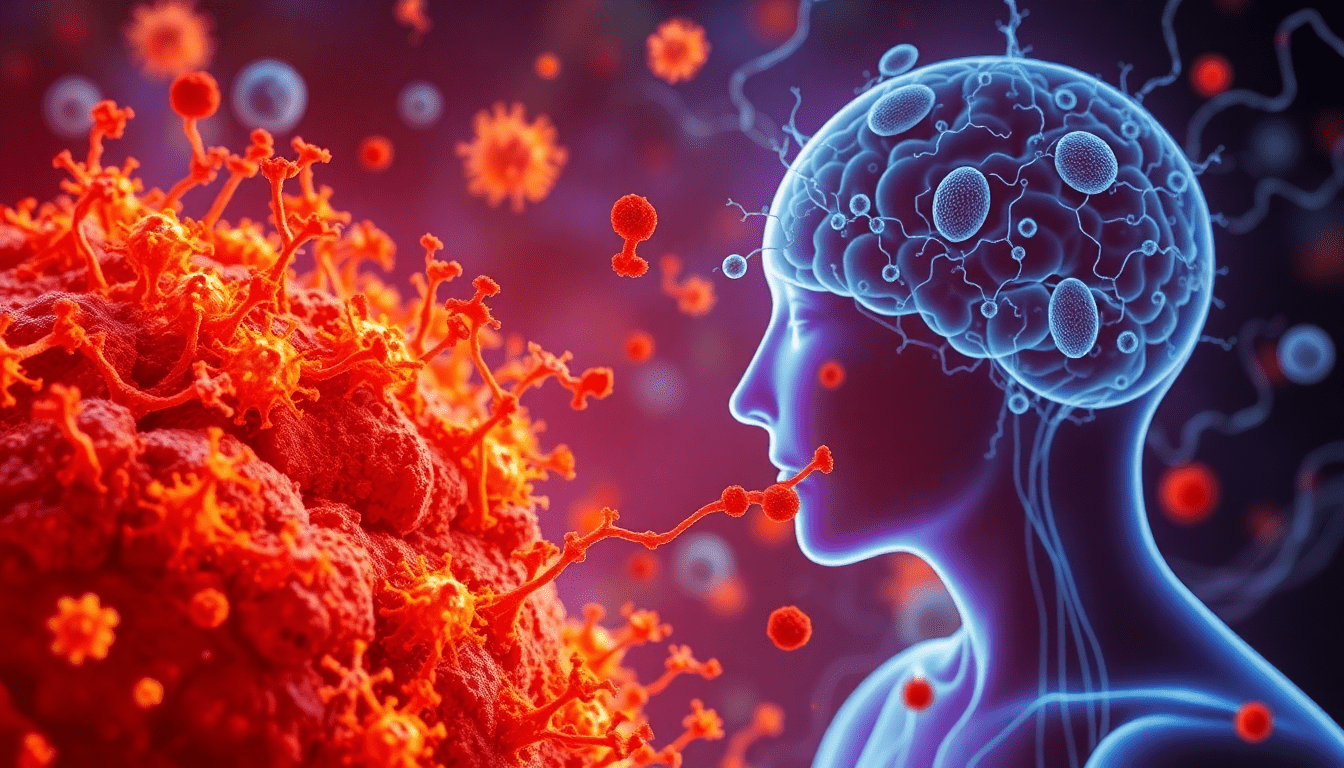
From Soil to Mood: How Soil Microbes Boost Immunity and Brain Health
From Soil to Mood: Can Soil‑Derived Microbes Influence Human Immunity and Brain Health?
Our connection to the earth goes deeper than we often realize. Soil is teeming with tiny life forms—soil microbes—that not only keep the environment healthy but also play a surprising role in our own well-being. Scientists are uncovering how these microbes influence the gut-brain axis, a complex system linking our digestive health with our immune response and mood. At InnerBuddies, we focus on understanding your unique microbiome and offer personalized advice to help you nurture this vital connection.
Understanding Soil Microbes and Microbial Diversity in Soil
What Are Soil Microbes?
Soil microbes are a mix of bacteria, fungi, and other microscopic organisms living within the earth. These tiny creatures are incredibly diverse, each playing a part in keeping soil fertile and balanced. Microbial diversity in soil means having many different species coexisting, which is essential for maintaining healthy ecosystems. Without this variety, our land and, interestingly, our own bodies could suffer.
How Soil Microbes Affect the Environment
These microbes break down plant matter, recycle nutrients, and help plants grow strong. When soil microbes thrive, soil remains fertile, plants remain healthy, and ecosystems stay balanced. This microbial activity also affects the food we eat and the microbes we encounter daily, setting the stage for the impact soil bacteria benefits can have on human health.
The Gut-Brain Axis: A Key to Emotional Immunity
What Is the Gut-Brain Axis?
The gut-brain axis is a communication highway between our digestive system and our brain. Signals travel both ways through nerves and chemical messengers. Our gut microbiota plays a crucial role in this conversation. The microbes in our intestines produce compounds that reach the brain and affect how we think and feel.
Emotional Immunity and Its Connection to Gut Health
Emotional immunity is our mind’s ability to handle stress and maintain balance during emotional challenges. Recent findings show gut microbes influence emotional immunity by producing mood-related chemicals like serotonin. When the gut’s microbial community is balanced, it helps regulate mood and reduce anxiety. On the other hand, poor gut health can contribute to mood swings and stress sensitivity.
Soil-Derived Microbes and Their Benefits to Human Health
How Soil Bacteria Benefits the Immune System
Soil microbes play a powerful role in training and strengthening our immune system. Exposure to a range of soil bacteria can help the immune system learn to respond appropriately to threats without overreacting. This helps reduce inflammation and lowers the chance of autoimmune diseases. The microbes we gain from natural environments add to our body’s microbial diversity, offering protection against illness.
Impact on Brain Health and Mood
Soil bacteria benefits extend to brain health via their influence on the gut-brain axis. Certain soil-derived microbes promote the production of anti-inflammatory compounds, reducing brain inflammation linked to depression and cognitive decline. This connection between soil biodiversity and mental well-being reveals a fascinating way nature supports emotional health.
Soil-Based Interventions: Microbiota Transfer and Health Improvements
What Are Soil-Based Interventions?
Soil-based interventions include methods like soil microbiota transfer, where beneficial microbes from soil are introduced to the human gut. These can be through probiotic supplements containing soil bacteria or lifestyle changes increasing direct soil contact. These approaches aim to restore microbial diversity in the gut and boost immune and brain health.
Potential Benefits on Immunity and Brain Health
Research suggests soil-based interventions can improve immune responses, reduce inflammation, and even uplift mood. People undergoing such treatments often experience better digestion, lower stress, and improved overall well-being. These findings reinforce the powerful role soil microbes play beyond the environment.
How to Support Your Microbiome for Better Immunity and Brain Health
Lifestyle Tips and Dietary Advice
To support your soil microbes immune gut brain axis, spend time outdoors and connect with nature regularly. Gardening, walking barefoot on the grass, or eating organic foods grown in healthy soil can introduce beneficial microbes. A diet rich in fiber, fermented foods, and whole plants also nurtures your gut microbiota. Avoiding excessive antibiotics and processed foods helps maintain microbial balance.
InnerBuddies’ microbiome testing can provide unique insights into your gut health, helping you tailor your lifestyle and diet for optimal results.
Personalized Health Insights From InnerBuddies
At InnerBuddies, we specialize in delivering personalized advice based on your microbiome test results. This guidance is designed to strengthen your gut-brain axis, improve emotional immunity, and enhance overall health. Understanding your microbial profile helps you make informed decisions about soil-based interventions and nutrition.
Conclusion
The link between soil microbes, immune function, and brain health is more important than ever. Soil biodiversity influences the microbes that shape our gut and, in turn, our mood and immune resilience. Embracing soil-based microbiome approaches can lead to better mental and physical well-being.
If you want to embark on this journey toward improved health, InnerBuddies’ Microbiome Test offers personalized guidance tailored just for you. Take the first step today and discover the power of your unique microbiome.

